The Supreme Court in a 5-4 decision on Thursday refused President-elect Trump’s request to halt his criminal sentencing, now just hours away, closing off Trump’s last remaining pathway to avoid receiving his punishment for his 34-count felony conviction in New York.
On Friday morning, Trump’s hush money sentencing will secure his status as the first felon to assume the presidency. Trump can attend virtually as Judge Juan Merchan is slated to hand down an unconditional discharge, a rare alternative to prison or probation that has no strings attached.
The Supreme Court’s denial of Trump’s emergency application caps his extensive efforts to stave off his sentencing.
Four of the court’s conservatives dissented: Justices Clarence Thomas, Samuel Alito, Neil Gorsuch and Brett Kavanaugh.
Chief Justice John Roberts and Justice Amy Coney Barrett joined with the court’s three liberals to deny Trump’s request.
When a jury convicted him on 34 felonies in May, the proceeding was originally set for July. After the Supreme Court’s ruling carving out immunity for former presidents, however, Trump began receiving multiple delays, eventually pushing the proceeding until after the election.
Once his political victory was secured, Trump re-upped his efforts and began advancing new arguments that, as president-elect, he should be immediately afforded the protections given to a sitting Oval Office occupant.
Merchan rejected both immunity arguments and days ago scheduled Trump’s sentencing for Friday, stressing a desire for finality in the trial proceedings before the case likely freezes upon Trump’s inauguration.
This week, Trump’s attorney filed a flurry of appeals even as Merchan signaled he would impose no punishment. The sentencing would still have the effect of officially labeling Trump a convicted felon.
“The prospect of imposing sentence on President Trump just before he assumes Office as the 47th President raises the specter of other possible restrictions on liberty, such as travel, reporting requirements, registration, probationary requirements, and others—all of which would be constitutionally intolerable under the doctrine of Presidential immunity,” attorney D. John Sauer wrote in Trump’s application to the high court.
Sauer, one of Trump’s personal appellate attorneys, is notably his nominee for solicitor general, who leads representing the government before the Supreme Court.
The new filing also listed as Trump’s counsel two of his hush money trial attorneys, Todd Blanche and Emil Bove, who were tapped for the second and third highest-ranking Justice Department roles, respectively, as well as Will Scharf, who will serve as White House staff secretary.
Manhattan District Attorney Alvin Bragg (D) opposed Trump’s delay request, which became fully briefed late Thursday afternoon.
“There is a compelling public interest in proceeding to sentencing; the trial court has taken extraordinary steps to minimize any burdens on defendant, including by announcing his intent to sentence defendant to an unconditional discharge; and defendant has provided no record support for his claim that his duties as President-elect foreclose him from virtually attending a sentencing that will likely take no more than an hour,” prosecutors told the high court.
The Supreme Court’s refusal to get involved comes after all three levels of New York’s state court system similarly rebuffed Trump.
The jury of 12 New Yorkers found the former president guilty on 34 counts of falsifying business records in a scheme to unlawfully sway the 2016 election by concealing a payment to a porn star to keep quiet about their alleged affair, which Trump has denied.

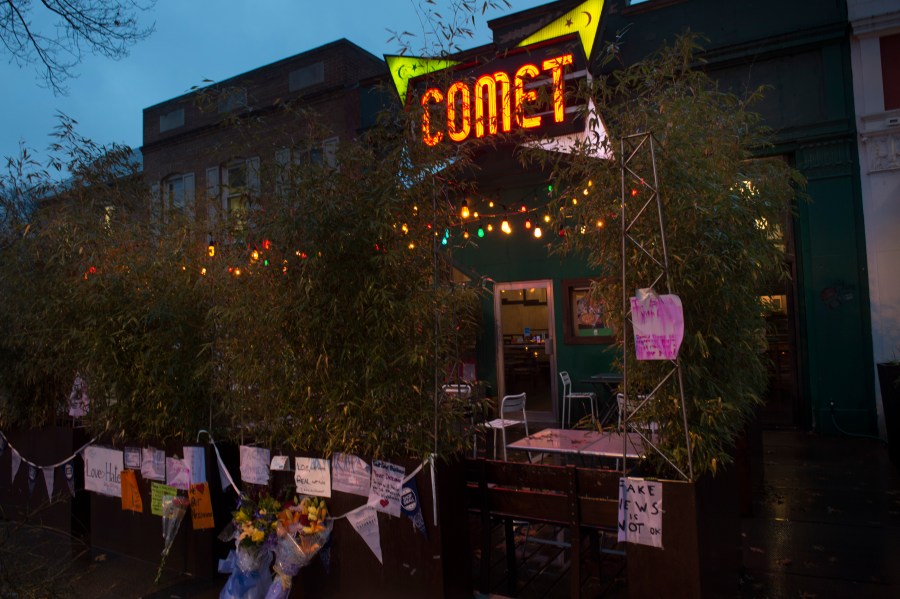
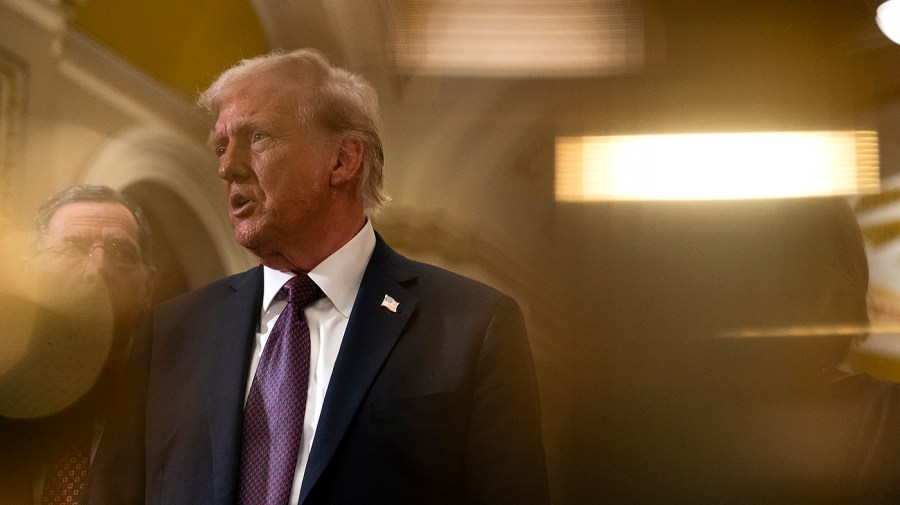
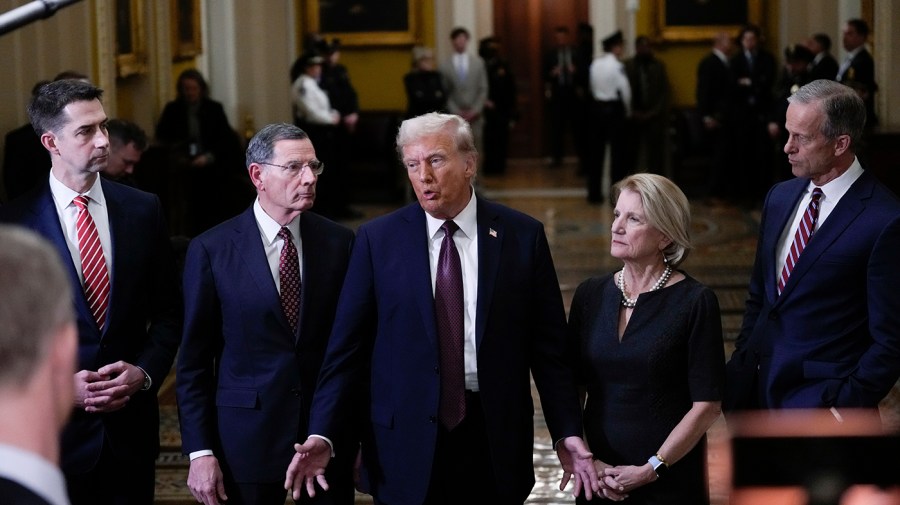
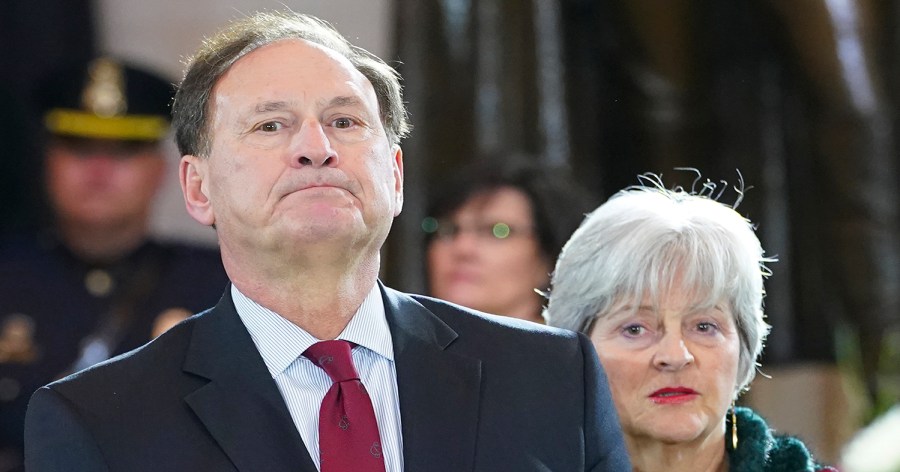
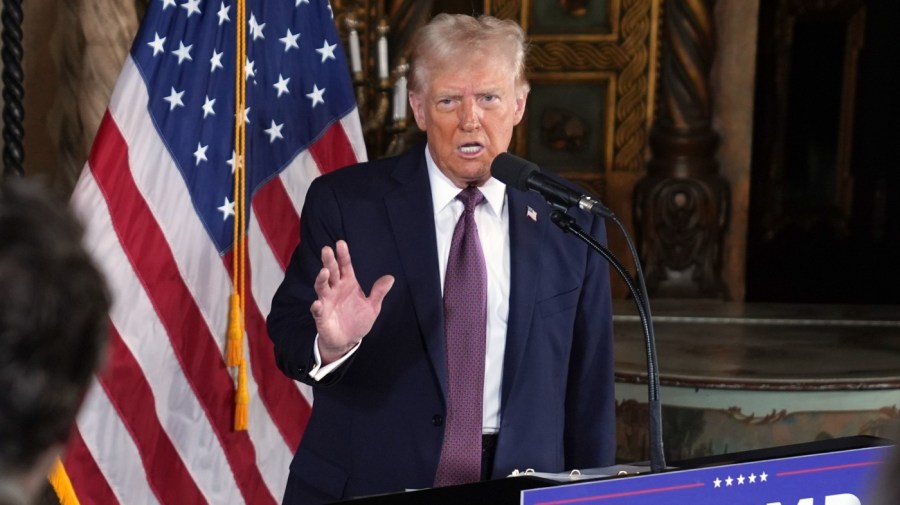
Leave a Reply